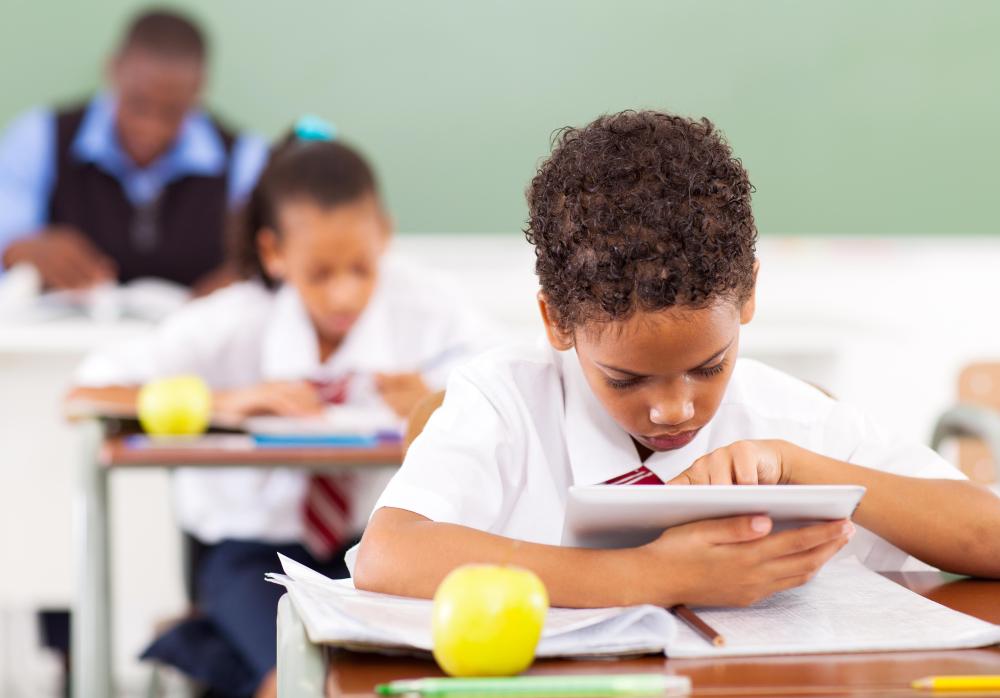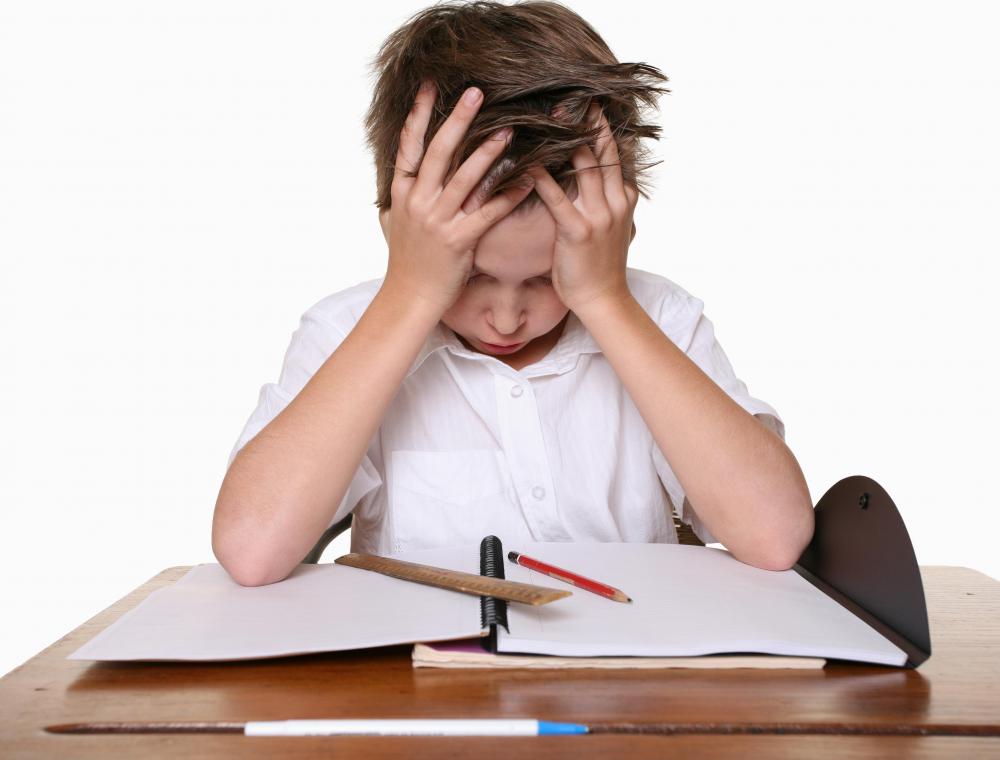At PracticalAdultInsights, we're committed to delivering accurate, trustworthy information. Our expert-authored content is rigorously fact-checked and sourced from credible authorities. Discover how we uphold the highest standards in providing you with reliable knowledge.
What are the Different Types of Alternative Learning Systems?
Alternative learning systems provide non-traditional locations and methods of study for those who choose not to attend traditional schools, or who struggle to keep up with typically learning peers for various reasons, such as physical or learning disabilities. The term alternative education may refer to the learning style itself, or it may refer to a school and its implemented system of learning. Such schools and systems may include: private schools, charter schools, alternative middle or high schools, and alternative colleges or universities. Some proponents also consider home education to be a form of alternative learning.
People who choose alternative learning systems, for their children or themselves, do so for a variety of reasons. One common reason is to accommodate the physical, emotional, or behavioral needs of students with special needs such as learning disabilities or developmental delays. Non-traditional learning systems may also be implemented to help disruptive or otherwise "troubled" students complete their education. Other reasons for choosing alternative education focus on religious beliefs, advanced instruction for gifted students, or specialized instruction for specific job or career skills.

Charter and private schools that embrace alternative learning systems are typically independently operated, although they may receive public funds. They function as alternatives to public schools and may have a specific focus of instruction, such as technology or business. These specialized focus schools are often known as “magnet” schools because they attract a target group of students with specific interests and talents. Private schools may be secular or religious, but usually boast academic excellence in their results.

Middle schools and high schools often use alternative learning systems to prevent at-risk students from dropping out of school. At-risk students with low achievement, disruptive behavior, or challenging personal circumstances may be able to be helped by alternative education. In contrast, some alternative middle schools and high schools function similarly to charter and private schools, offering specialized instruction in key areas for gifted students with higher aptitude. Still another kind of alternative education serves those students with developmental or learning disabilities, or medical conditions, by providing them with a therapeutic environment that will help them overcome barriers to learning. This environment often provides accommodations such as individualized instruction, assistive technology, and modified learning objectives and goals.

At the upper levels of alternative learning systems are alternative colleges and universities. These non-traditional learning environments tend to focus on "progressive" studies, such as "green" or environmental issues, alternative medicine and practices, and specific religious beliefs and practices. Within both traditional and non-traditional programs, higher education institutions may offer online learning as an alternative system for busy adult learners. Online education can provide a more flexible, convenient means for these students to earn valuable degrees for career advancement or new career opportunities.
AS FEATURED ON:
AS FEATURED ON:













Discussion Comments
@bythewell - Home-schooling can be amazing if the parent responsible for it knows what they are doing. It can definitely instill a love of learning in a person that is difficult to come by in conventional schools.
The disadvantage though, from what I can tell, is that it's almost impossible to compensate for the lack of socializing that seems to go hand in hand with home-schooling.
A conventional classroom involves children being forced to work together and amongst each other for a large portion of their day, for a large percentage of their childhood. They might not learn academically, but they will learn how to socialize through exposure alone.
The ability to relate to others is crucial in modern life. I would find it difficult to justify depriving my kids of the same measure of ability in that area by home-schooling them.
@pleonasm - I think this is one of the reasons that more and more parents are deciding to home-school their children. It's a way of giving them the most cutting edge education without having to rely on finding a perfect (and expensive) alternative school.
My friend went through teacher's college a few years ago and he was particularly fascinated by alternative learning systems. He seemed to be disappointed by most of the options out there, however, because many of them were simply not that flexible.
Montessori schools, for example, have a really good philosophy in theory, but in practice they are still teaching the same way they have for 70 years.
Now I don't care how wonderful an education system happens to be, it should change over time as new information about education is discovered and developed.
Ironically, it's probably public schools that tend to change their policies the most, in response to public and government demands, but in that case the change isn't always directed towards benefiting the students.
Post your comments